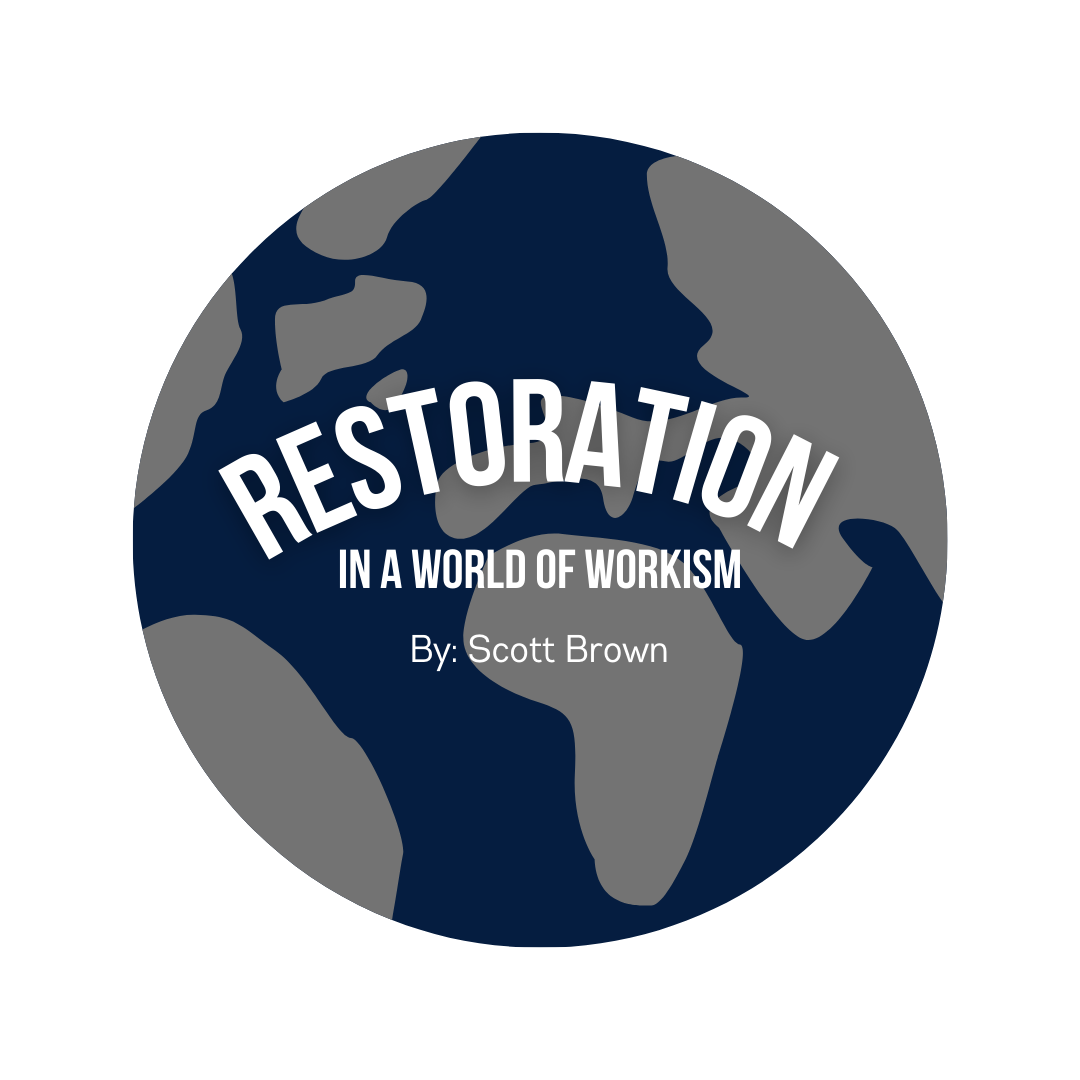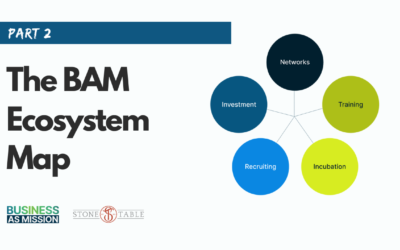Restoration in a World of Workism

Our world is a whirlwind. It’s in absolute chaos. Gender roles, war, family breakdown, street violence, racial tension, political polarity – you name it, it’s there. Work starts to look like an escape sometimes.
I was talking with some parents of three kiddos all under the age of 10 and they were talking about how sometimes work is easier than being at home! Sometimes there are events in our lives that look more difficult than being at work.
Yet, how does one “balance” (I prefer “keep in tension”) this work-life dynamic? Without proper rest, we can fall into workism, a deceitful guise of worshiping our work, and without proper work, we are just plain lazy!
Our chaotic world is a place ripe with workism. The practice of workism is exceedingly popular in the US, perhaps especially among business professionals, but really it shows no partiality to people.
Workism takes the rope from rest and rest takes the rope from workism – similarly to how the Spirit and flesh war against one another. Which do we sow into?
Work is meant to add value to both the world around us and the human experience – it was something God ordained in His original created order. We, as humans, were meant to work in the Garden and till the land, preserving it and flourishing it. However, sin entered the picture shortly thereafter and threw the whole picture into a riddled mess. This is the world we find ourselves in today, for the most part.
Workism and Work
Workism enters the world through sin. Let’s keep it simple.
Workism is an idolatrous practice that exalts one’s work to the status of god (keep it “little g”), and their productivity becomes an idol that defines their identity, status, and value in the world. While work is in fact an important part of our lives, and the world around us, it is not meant to define us or price us according to its perceived worth or production.
A janitor is not just a janitor, and a CEO is not just a CEO. In God’s structure of the world, these two jobs are parallel, if each works for the glory of God and knows their role & value in the sight of our Lord.

There was no workism in the Garden and there will be no workism in the New Creation, therefore, each role is significant and each role plays an important, valued part in society. This is how God sees our work.
I think we really learned this in the 2020 covid era. We as a society took everything for granted until the only people we could rely on were the Amazon drivers and grocery store workers – the very ones we refused to see as equals before then. Without the “lowly” people working the factories, the “just” delivery drivers running the trucks, and the “kid” cashiers running the checkouts, we would have been without food or necessary amenities- something to think about.
Workism tells us that based on our productivity, or the peer-determined “elite-ness” of our work title, we are weighed & valued. The scales favor those of “higher” work statuses, higher levels of productivity, and busier schedules. And the rest? Just your average nobodies. That’s our society today – we practically worship our schedules!
Imagine if someone’s emergency threw a wrench in your perfectly ordered day. You had just gotten your vanilla oatmilk latte (@ me) and sat down at your desk to begin a day of meetings and hard work when someone interrupts your space with an emergency. How do you respond?
Sometimes our response to things like this can be a gauge to how much we worship our own schedules. This can be a system check for workism in our own lives.
If we value ourselves based on our productivity, like workism promotes, then we have a brutal time trying to get back on track after an interruption like that. We may hold onto resentment, bitterness, or even begin to speak poorly of others in that space – something that only further highlights the heart of workism (and simply being selfish!).
Workism can look different on people, but sometimes that abhorrent selfish attitude that puts the value of productivity & ordered schedules above the value of people themselves can be another system check that points out some misalignments in our hearts.
Work is good, but work in God’s order is better.
Worship over Work
Worship is the heart of every Spirit-born believer. As followers of Christ, our lives are to be ordered with worship built right in. That’s part of loving Jesus! That’s part of following Him.
Worship is returning praise, honor, and glory to the One who deserves it – God Himself. Worship is not just an action, but it is an attitude, even a lifestyle, that should be reflected in all that we do as Christians.
According to the Bible, we can worship God in & through all that we do, including our work (Colossians 3:17, 23-24; Romans 12:1).
Work was created in a way that we could return worship to God with the work of our own hands. This means that as we work & serve with excellence, knowing that we serve God in all that we do, we are actually worshiping God! Isn’t that something? I think so. It’s pretty cool that I can sit here writing an article and know that I am worshiping God as I pray into it and serve Him well in this moment.
The bad guy, however, distorts worship. Satan corrupted humankind’s worship by throwing doubt & deceit into our lives, trying to take it away from God if he couldn’t get it from us himself. This distortion of worship comes out in many ways in today’s society, including workism, worship of self, or worship of other idols (people, things, money, time, etc.).
Workism is one distortion of our worship that takes our hearts from God and puts our focus into our work alone. This creates work as the ultimate source, provider, and securer of our futures. In workism, our work becomes savior, identity-definer, and our foundation. It’s a strange concept to examine, but it is far more prevalent than one may think – even amongst Christians.
Work is a way for us to worship God. As we serve with excellence, authenticity, and humility, we open the door for the Gospel to work powerfully through our hands & words. This brings glory to God, giving honor & reverence to Him in all that we do. This is a Scriptural approach to work, academics, and relationships.

While workism is a noticeable facet in our society today, we as believers & worshippers of Christ, have a way to navigate out of this idolatrous practice by depending on the Spirit. As we listen, lean in, and repent of our mistakes, we are shaped more & more into the image of Christ by the Spirit. This keeps us in line with God’s will, ensuring that our work, words, and will become elements of God’s created order and plan for the world.
As we lean on the Spirit, we even allow our work to become part of what brings God’s kingdom to earth, just as it is in heaven.



